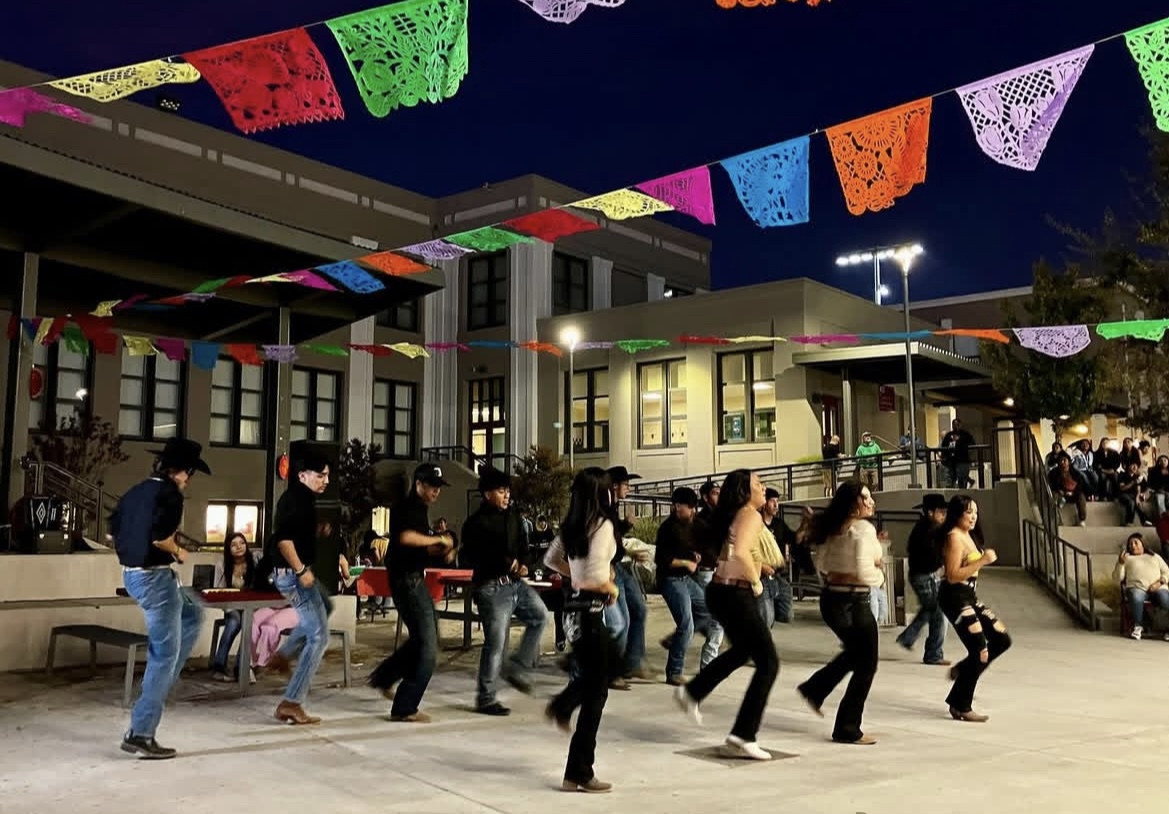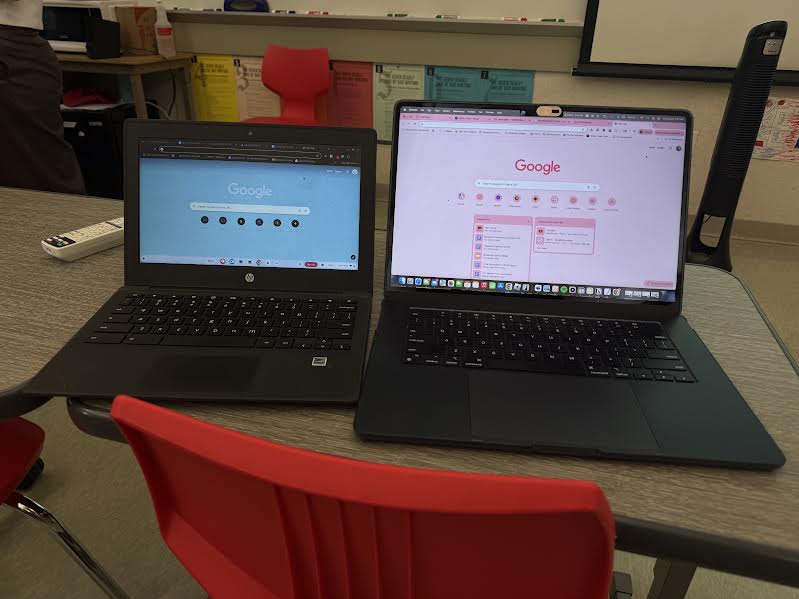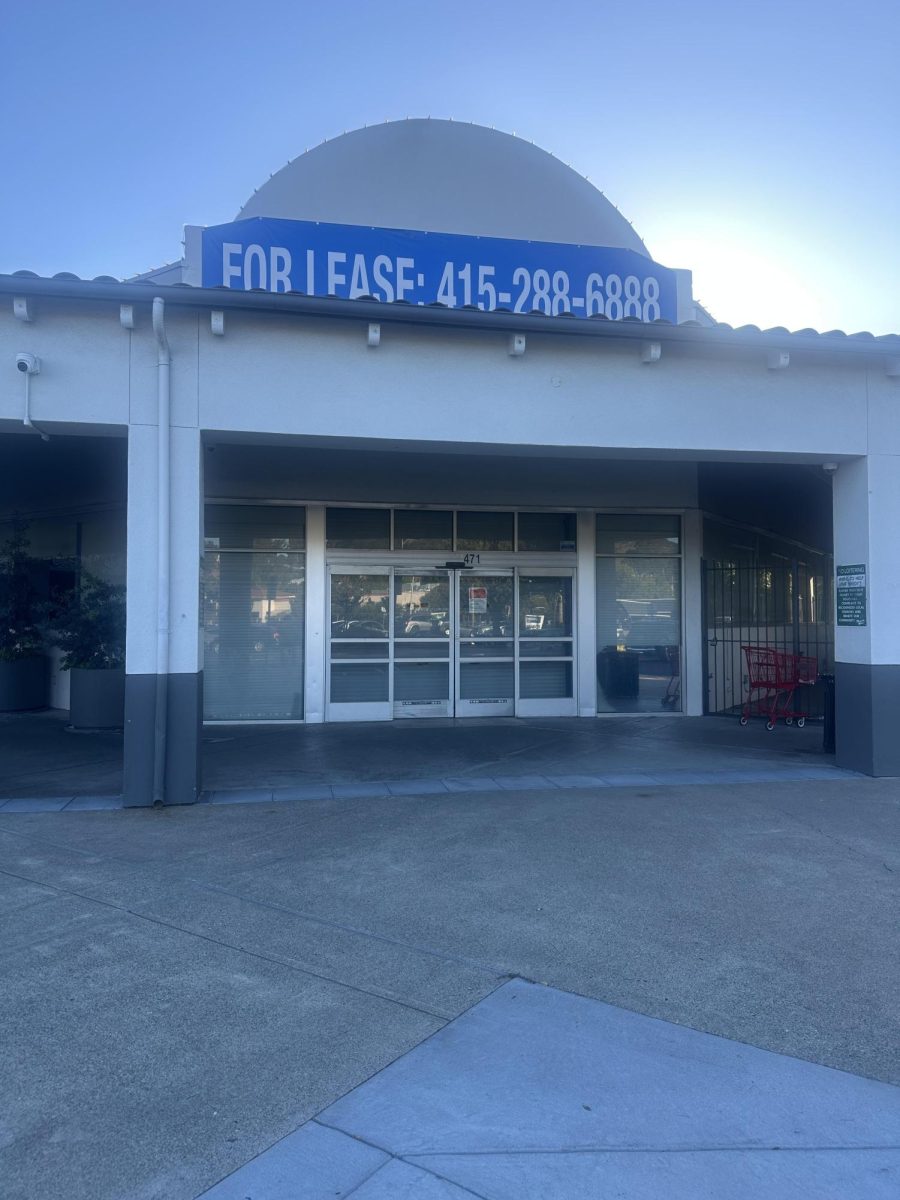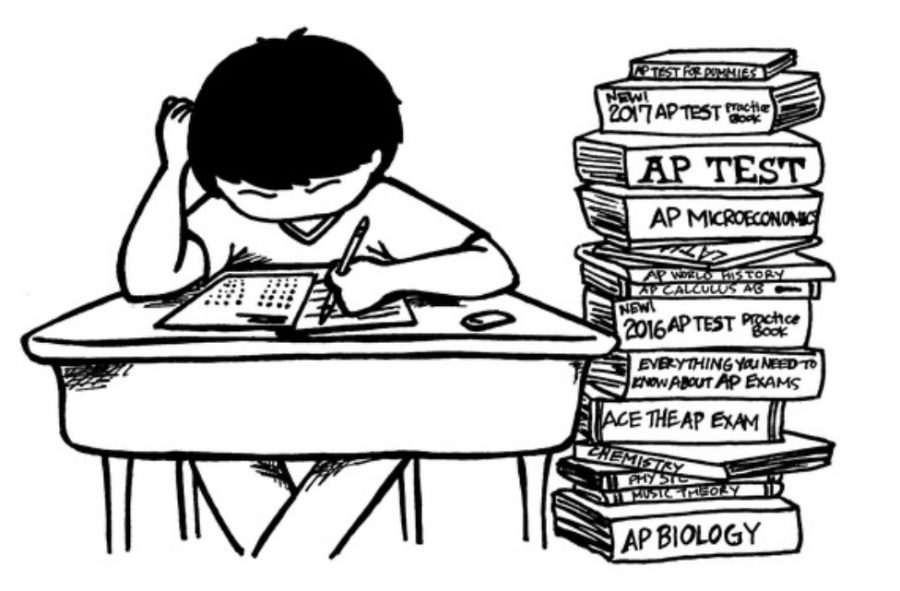Advanced Placement Classes Have Benefits. Students Need to be Responsible for Accessing Them.
December 9, 2022
As students advance through high school, the number of coursework increases. The majority of students – especially Juniors and Seniors – are constantly worried about improving their grades to stand out on their college applications. The idea of taking Advanced Placement (AP) classes has been established as something “normal” and “necessary.” Teenagers who want to go to reputable universities in the future have felt pressured to take these AP classes for a simple GPA boost, to save money, and time, to receive college credit, and most importantly, to increase the odds of college acceptance.
Although these things sound great, AP classes tend to do more harm. AP classes are over-emphasized as students are constantly overworking themselves for a grade rather than learning the curriculum. Some students have never taken an AP class and aren’t conscious of what to expect. Some students signed up for an AP class, haven’t done any of their school work, and yet ask teachers to raise their grades. These situations create more work for teachers who are constantly told that they need to support these students the most. What if a student struggles in an AP class and doesn’t ask for help? Aside from teachers offering help during advisory, lunch, and after school, there is a miscommunication on whose responsibility it is for students to strive in an Advanced Placement class.
According to CollegeVine, AP classes offer college-level subjects such as sciences, math, computer science, languages, and much more. Students have the option of taking the exam in May to potentially earn college credit. While these courses do challenge students, they can diminish their love for learning. “There is always an excuse in AP classes, and that is that ‘It’s a college-level course, it is meant to be hard.’ ” said an SRHS student who prefers to be anonymous. “At this point, I no longer want to be in any of my AP classes.”
Taking these classes can demonstrate to colleges that students are having a sense of what to expect in the future. However, according to research by The City of New York University, the pressure of AP courses causes students undue stress and confidence loss. Hailie Lopez, a Junior at SRHS mentioned, “I knew that it was going to be a lot of homework, but I thought they were going to ease us into it. Based on the packet I received during the summer, I was assigned to write an AP style essay format on the first day of school which caught me by surprise since I didn’t know how to write one.” Roberto Castillo, a Junior at SRHS said that he has situations outside of school that take the majority of his time. “I was aware of how the AP class system is,” mentioned Mendez. “I wasn’t expecting such a drastic change.” This relies on a problem I constantly see among my peers.
AP Classes aren’t necessarily explained well other than just “it’s a college-level class” or in any way using the word “harder.”Whenever it’s time for students to meet with their counselors, the topic of “AP classes’’ rings a bell. They sign up for these classes without acknowledging the time and pressure they face.
For the first time, Isabella Rodas, a senior at SRHS, is taking an AP class. “It’s difficult. I wasn’t prepared for all the work,” said Rodas. “I never took any Honors and CP classes didn’t prepare me for an AP class.” In her experience, she felt comfortable in her class and was intrigued by the material. Initially, she signed up for AP Language and Composition, but due to scheduling issues, she had the option to take AP Literature and Composition. “I talked to my counselor about this arrangement and decided to take the class,” said Rodas. However, Rodas had moments of doubt whenever there was a situation where most of her classmates knew what to expect from her.“Whenever I ask something basic about AP, the rest of the students would know the information and I always ask myself ‘how do they [the students] know everything!’” said Rodas.
Sandra Le, a Senior at SRHS, also shares her experience in AP classes. Le decided to take AP classes to challenge herself and take a step further to try something new and potentially earn college credit. “In the beginning, it was difficult because the class was something new to me,” mentioned Le. “Later on, I started adjusting to the pace of the class and continuously enjoyed it.” Le also mentioned how her teacher offers to tutor. Although students sign up for these classes without acknowledging the time and pressure they face, some are able to adjust.
According to an article written by Ellen Ciurczak for Hattiesburg American, the number one factor in a student’s success is the teacher in the classroom as “they are the ones directly responsible for engaging the students in learning” and are responsible to build a relationship with a student because without that relationship “students can’t even create an interest in coming to school, much less engaging in learning.” On the other hand, in an article published in The Hope, a retired teacher shares his experience in where they would offer help to students. However, some students “chose not to participate in class learning activities, failed to consistently turn in assignments, had to be removed from class for disrupting instruction, and didn’t study for tests.”
Teachers are a big part of everyone’s life. There are limits a teacher can go in reaching a student. It can be easy to blame the teacher, but the responsibility is on the student. For instance, a student who is not doing the work is failing. After multiple efforts, the teacher reaches out to the student. If the student ignores the help and fails, is it the teacher’s fault?
“The main thing is that they [students] don’t come for help,” said Mr. Winton, a teacher who has taught AP European History for eight years. “I try to get kids to come during Advisory but it’s hard to do that.” In general, teachers want to help students to be successful. “Now we are encouraging students, especially those of color, to take AP to challenge themselves but there is no support.” Besides teachers helping students in class, there is no other adult who’s responsible to check with them to help students with questions such as: this is how you approach your teacher if you have a question, here is how to approach an assignment, etc.
“A majority of students are more interested in a grade than the content, making the class less joyful for them,” said Mr. Allen, a teacher who teaches AP United States History (APUSH). “In reality, an Advanced Placement course has to be student-driven. At some point students need to do their work.”
Even though AP classes have benefits, students need to realize that these Advanced Placement classes are more student-driven. Teachers offer their help, and it is up to the student to be engaged in class and take advantage of it.
*Some names were changed to protect students’ identities, including the names Roberto Castillo and Isabella Rodas*






































